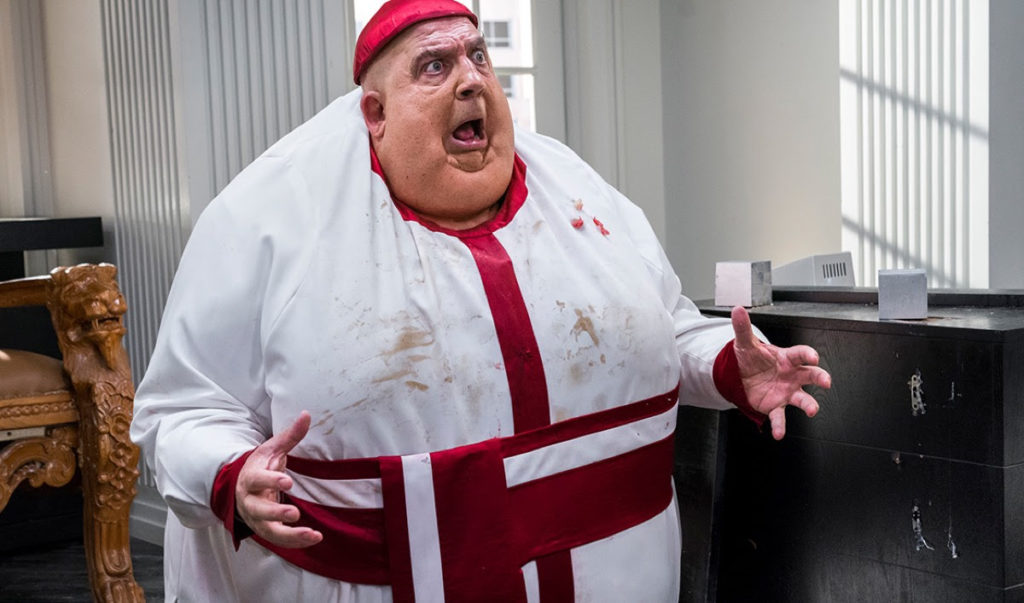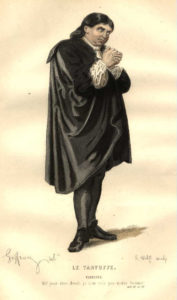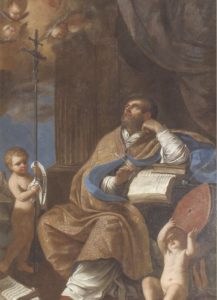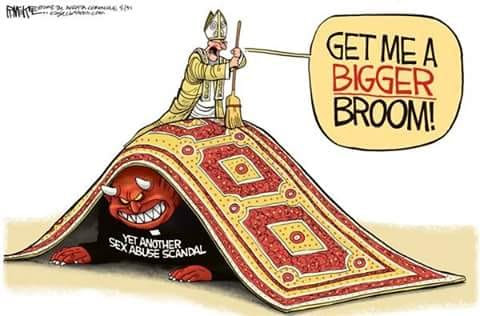The Roman Catholic Church reached the point of crisis some years ago. The ever-expanding scandal of priestly sexual abuse and, just as bad, the intricate and systematic cover-up by the highest authorities, has deepened the shadows in which lay Catholics have painfully struggled. What should they do? Leave the Church for Eastern Orthodoxy or Episcopalianism? Not a bad idea, it seems to me, but then I’m not a Catholic. But if I were, here are some of the factors I’d consider.
The situation is complicated by the nature of the Catholic Church as an institution. If one were dealing with a scandal in a Protestant congregation in which a clergy sex scandal had been revealed (and they have been, many times), it would be a simpler matter. Fire the minister (or make him undergo “counseling,†which I have always suspected was a euphemistic Get Out of Jail Free card provided by a sanctified Good Ole Boys club)—if you can. Sometimes the loyalty of the congregation to a beloved minister makes them reluctant to believe the charges against him, no matter how well-founded; either that or it makes them too forgiving. In these cases, one’s recourse would be simple: quit the church or split the church. But the Catholic Church is, by ancient design, a closely integrated, massive, and rigidly hierarchical institution. Only so could it ensure uniformity of doctrine, morals, and discipline. It ought to be able to employ this great machine to stamp out abuses like clergy sex predation, but what if the corruption is so deep, so far-reaching, so high up the ladder that it is no longer a question of getting rid of a few (thousand) bad apples? Suppose the Church hierarchy, the institution itself, has become the abuser?
It has happened. Even the Pope has been credibly charged with covering the butts of offending priests as well as those of bishops who protected the wolves instead of the lambs. You know, hosting the game of Musical Molesters. What should Catholics think? What should they do?
 Let’s ask Saint Augustine. He was the theologian-bishop of Carthage in the early fourth century who defined important aspects of Catholic belief and practice as they still exist today. Some of his influence was good, some bad (and the verdict will vary according to whom you ask). Predestination, infant baptism, and more. Here I am thinking of his “solution†to the Donatist Controversy. As you may already know, the last serious persecution of Manicheans and Christians was that commanded by the pagan emperor Diocletian at the end of the third century, just before the Christian Constantine became Caesar. The trouble was this: during the persecution, a number of bishops knuckled under, renouncing their faith, embracing Caesar-worship, and handing over copies of scripture to be burnt. When the danger was passed, and clergy were in short supply, some of these fair-weather bishops showed up at church waving a white flag with a lot of explaining to do. Many managed to get their old jobs back, after suitable penance, involving public embarrassment. (The penance had to be pretty serious—after all, what these yellowbellies had done was to buy a one-way ticket to the Inferno according to Mark 8:38!)
Let’s ask Saint Augustine. He was the theologian-bishop of Carthage in the early fourth century who defined important aspects of Catholic belief and practice as they still exist today. Some of his influence was good, some bad (and the verdict will vary according to whom you ask). Predestination, infant baptism, and more. Here I am thinking of his “solution†to the Donatist Controversy. As you may already know, the last serious persecution of Manicheans and Christians was that commanded by the pagan emperor Diocletian at the end of the third century, just before the Christian Constantine became Caesar. The trouble was this: during the persecution, a number of bishops knuckled under, renouncing their faith, embracing Caesar-worship, and handing over copies of scripture to be burnt. When the danger was passed, and clergy were in short supply, some of these fair-weather bishops showed up at church waving a white flag with a lot of explaining to do. Many managed to get their old jobs back, after suitable penance, involving public embarrassment. (The penance had to be pretty serious—after all, what these yellowbellies had done was to buy a one-way ticket to the Inferno according to Mark 8:38!)
Others, however, were rudely told to hit the road. These guys had forfeited any right to, e.g., administer the sacraments. It would be the worst kind of farce. It must make a mockery of the sacraments. Even worse, any sacraments they had administered before the persecution and apostasy must be declared null and void! It is no surprise that churches throughout North Africa took sides, resulting in a schism. The stricter group was named for one of its chief leaders, Donatus Magnus. This is where Augustine came in. He tried to come up with a theoretical basis for reconciling the factions. It didn’t go over big. Augustine really just defended the Catholic side and hoped the Donatists would come on board. They didn’t. Here’s what he suggested.
He was apparently less concerned with the hat-in-hand bishops than with the laity who were worried that the absolutions they had received, their church marriages, and their babies’ baptisms were all negated, at considerable peril to their souls. Both priest and people, Augustine reasoned, would be served by his proposal. Let’s take a couple of steps back. First, why are priests ordained at all? They are to administer sacraments and to enable and entitle them to do this they themselves must receive the sacrament of ordination.
Second, what is a sacrament? What is it about a sacrament that requires an ordained priest to administer it? Here is a major point of difference between Catholics and Protestants. The latter regard the ministry as a sacred task, yes, but essentially a profession. The Protestant minister has no greater access to God than the layperson. He is simply trained and skilled for pastoral duties, exactly analogous to a physician or a lawyer. The Catholic priest of course receives much the same training, but the nature of the sacraments adds a crucial element to priesthood. The minister knows his Bible and how to baptize, how to preside over the Lord’s Supper, how to perform weddings and funerals, etc. If a layperson studied up, he could pinch hit for the minister if needed. But it must be an ordained priest to administer the Catholic sacraments because these rites are understood as “means of grace.†Some Protestants use this term, too, but the Catholic belief is that “grace†is a supernatural saving power. (I’d say it’s like the Holy Spirit, but without the personhood.) It is this grace which makes it possible for baptism to cleanse one from Original Sin, which transforms the communion elements into the Body and Blood of Jesus Christ, which effects the absolution of sins. These acts are metaphysical and miraculous, not just symbolic.
Moreover, the priest does not do these things in virtue of his own personal holiness. Likewise, even a saintly layperson dare not administer the sacraments (though there are special cases). The ordained priest is set apart and equipped for his role by his own sacramental anointing.
Augustine reasoned that, since the sacraments are divine works, not human ones, not “works of the flesh,†their value does not depend upon the character of the priest who administers them. The bread and wine become the Body and Blood by divine grace. The power of God, not the personal sanctity of the priest is the electricity; the priest is but the wire along which it travels. So if the priest should turn out to lack holiness or even moral integrity, it wouldn’t affect the sacrament. The sinful priest would be in trouble with God, but he wouldn’t be ruining things for his unsuspecting parishioners. This makes a lot of sense: it is God, not the priest, who is saving and sanctifying you.
But there is an unintended possible consequence of this thinking. It takes only a step or two in the wrong direction and you have a whole clergy establishment in which a sacramental system of divine grace independent of human morality exists side by side with an immoral libertinism. The two come to coexist more and more comfortably. And that’s where we are today. If this were not so, we would have to imagine some insidious secret cabal seeking to infest and subvert a Church that once valued personal sanctity. That would indeed be bad enough, but I think it is worse if the Church hierarchy has, by itself, come to accommodate itself to immoral libertinism as an acceptable norm.

Now let’s ask Dostoyevsky’s advice. We find it in his great novel The Brothers Karamazov. Alyosha, a pious monk, attempts to win his profane brother Ivan back to Mother Church. But no sale. Ivan tells Alyosha that he cannot reconcile God’s ostensible justice with the manifest suffering of innocent children. The moment you offer some sophisticated rationalization for God allowing such atrocities, you are becoming his accomplice-after-the-fact. You are saying, in effect, “It’s okay with me! There’s a good reason for it, even if I can’t say what it is.†I think of this scene every time Cardinal Dolan or Philip Donahue disgraces himself by splitting hairs to try to mitigate the seriousness of the scandal. How can they live with themselves? And when His Popishness himself asks (cheap) forgiveness for the tsk-tsk “outrage†over the scandal, I think of Claude Rains in Casablanca: “I am shocked, shocked, to find pederasty going on here!†Also the moment in Moliere’s play Tartuffe when the live-in charlatan tearfully confesses his charlatanry, which of course only makes his gullible suckers adore him all the more.
But of course the Church is not the same as God. Or is it? I take a lesson from Emil Durkheim who suggested that God, the gods, and totem animals are projections, mystifications of the communities who believe in them. In the present case, “God†functions as a decoy: “Oh, sure, we have shortcomings, but don’t blame God!†The institutional nature of the Catholic Church, I think, really makes it impossible to distinguish between the two. The ground rules include the belief in a Pope who speaks infallibly when he wants to, together with every Catholic’s obligation to believe and obey this “vicar,†or stand-in, for Jesus Christ. Especially revealing is the belief that there is “no salvation outside the Church.â€
Remember the gospel parable of the Wicked Tenants (Mark 12:1-12)? The religious authorities are portrayed as a group of sharecroppers who refuse to turn over to the land owner his share of the harvest, beating up his representatives and sending them home empty-handed, finally even lynching his son, thinking that, with him out of the way, they will be in line to inherit the vineyard, by virtue of occupation, once the old man dies. But they have counted the owner out too quickly: he sends in armed enforcers to kill the sharecroppers. Then he replaces them with better, more trustworthy sharecroppers. Even so, says Jesus, God is about to take from the corrupt Temple authorities their oversight of the sanctuary and its rituals. Did that happen? Yes; the parable was written after the fact, blaming the Jerusalem priesthood for the Roman destruction of the city and the Temple in 70 CE.
If you applied this parable to the rulers of the Catholic Church, what would it look like? Not violent destruction at the hands of outside powers. At least, I hope not. Let me shift over to a different biblical precedent: the withdrawal of a pious community from a religious body deemed corrupt and the formation of an alternative “church in exile.†A prime case would be that of the Zadokite covenanters of the Dead Sea Scrolls, who disdained the Herodian Temple and its priesthood for perceived unorthodoxy and moral corruption. They organized their own counter-community with its own version of the Torah-prescribed rituals. This is what I humbly suggest happen today.
As long as you continue to identify with the disgustingly corrupt institution of the Catholic Church with its lecherous and hypocritical hierarchy, are you not making excuses for it? By protesting that the Church is yours, not that of these Wicked Tenants, aren’t you just making it easier for them to continue doing what they have always done? If you offer that excuse for remaining, I even wonder if you really understand what Catholicism is! It is a top-down operation, not a bottom-up one.
I’m not saying become a Presbyterian. Start a schism like the Donatists, like the Old Catholic Church, and the Polish National Catholic Church. Preserve your traditions, your rituals, your doctrines. Have your bishops choose a new Pope, an “Antipope†as they used to call them in times of schism. You don’t have to hate anybody. Take your leave prayerfully and amicably.
 Better schism than stigma.
           So says Zarathustra.



2 Responses to Saint Peterasty